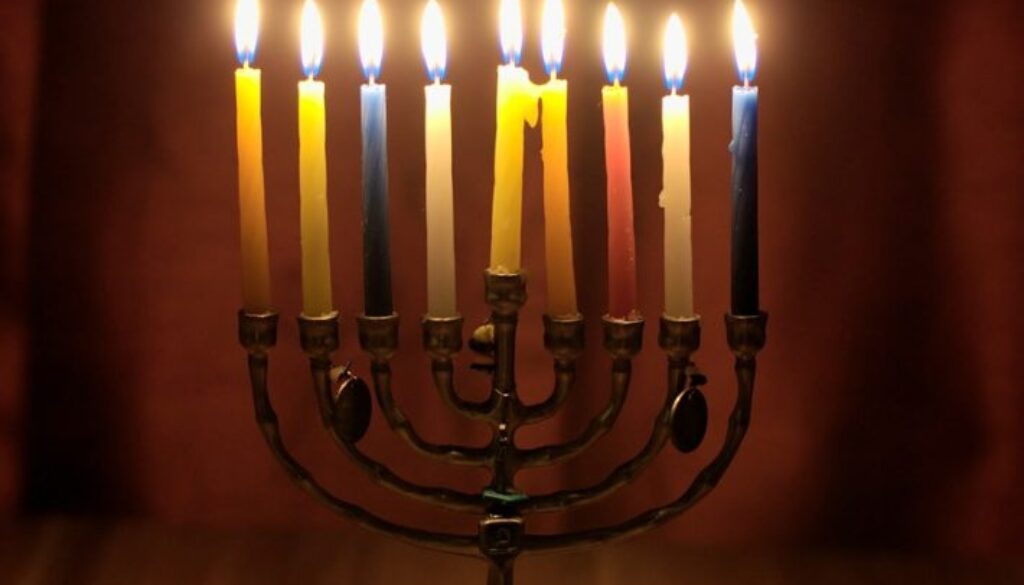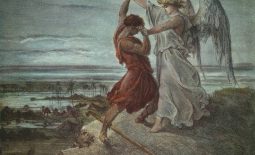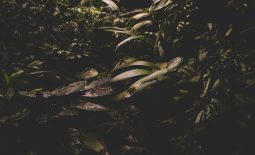Inner and Outer Light
By Rabbi Esther Hugenholtz
Sermon Vayeshev 2018
Inner and Outer Light
There are many protagonists in the stories of our tradition. In fact, one could argue that God is the leading character in the Torah with an impressive supportive cast (and some enticing special effects). However, sometimes we get so engrossed with the story arcs of our favorite personalities that we sometimes forget to pay attention to the backdrop: the land and context in which each story is set. I would argue that the land (or lands) of the Torah is just as important a character and formative in the narrative.
We are about to enter the extensive Joseph cycle which takes up which takes up the remaining twelve chapters of the book of Genesis and one could argue that this is a novella in its own right and can make for standalone reading. Many things are significant about the Joseph cycle: the personal development of a young man who is very much his father’s son: arrogant and manipulative. The articulation of a concept of individual morality when Joseph demurs the advances of Potiphar’s wife and gives voice to his own relationship with God in passages that feel strikingly modern. The political dimensions that script how power is challenges and negotiated: how a lowly immigrant gains access to the halls of power and makes far-reaching and not uncontroversial economic policy. Yet, one thing that is most striking about the Joseph story is that it is very much a story for our times: not only in the sense that its emotions feel contemporary but also in what place it occupies in the liturgical calendar.
The Joseph cycle always coincides with Chanukkah and there is a wealth of connectivity between the two that is worth exploring. One of the connective points between Joseph’s experiences and Chanukkah is that they are both ancient meditations on the Jewish diaspora experience. While the Chanukkah story from the Book of Maccabees is of course set in ancient Israel, the crafting of Chanukkah into a Jewish holiday – the tradition’s only extra-Biblical one that was developed last in our liturgical calendar – happened in the days of the Babylonian Talmud. Shammai and Hillel already discuss the procedures on lighting the Chanukkah lamp, the channukiyah, but it isn’t until the Gemara, the Babylonian commentaries on the Mishnah, that Chanukkah gains its miraculous and sacral overtones. The story of the cruse of oil is a Talmudic innovation and does not appear in the Maccabean source text.
At the heart of both the Chanukkah story and the Joseph story lies an existential question. If the Diasporic experience of our people – whether in Egypt, Babylonia or even the United States – is its own ‘character’, then how do we react against it? What is the relationship we form with our Diasporic experience? In both cases, there is literal darkness: Joseph is thrown into a pit (and Rashi adds scorpions to the pit for good measure) while the light of the Temple under Hellenistic occupation is snuffed out. Both stories are told in the proximity of the Winter Solstice. Whereas the Winter Solstice would be less pronounced in the latitudes of ancient Israel and Babylon, there is still a significant differential between light and darkness, warmth and cold. Not unlike the mythology of another sacred tradition, which places a Nativity Scene in the hills of Judea, it is not unlikely that snow would have graced the Temple Mount. (As a side note: I can recount from firsthand experience that Jerusalem in the winter, with snow, is a miserable place to be – under those conditions I’d much rather be in Iowa City!) Both stories factor in conflict and resolution, whether through weapons or wit, for the Jew who is forced to reckon with his or her identity. These stories are not stories of a pure, virginal, primordial Jewish identity but they are narratives of assimilation. If anything, one could argue that the Particularist emphases of the festivals to come: Chanukkah, Purim and even Pesach, come out of the encounter with the surrounding non-Jewish world.
Joseph, of course, is a good Jew, and presents us with a different model than the aggressively militarized model of the Hasmoneans which bred its own form of intolerance. Both Chanukkah and the Joseph story can give us ideas about how we engage with the broader world. Are we reactive and bellicose or decisive yet contemplative? Is our strategy one of fire or one of light? We can find the answer in Joseph’s high calling when he rebuffs Potiphar’s wife: ‘V’eich e’eseh hara’ah hagedolah hazot v’chatati le’Elohim?’ – ‘How can I do this most wicked thing and sin before God?’ We can find the answer in the Book of Zechariah, the Rabbinically-instated Haftarah for Shabbat Chanukkah, where the prophet gazes upon a vision of a restored Temple with a gleaming Menorah and proclaims: ‘Lo bachayil v’lo b’koach ki im b’ruchi’ – ‘Not by might and not by power, but by My Spirit.’
While there is no shortage of commentators who write, argue, podcast, lecture on the state of Diaspora Judaism (I referenced some of those voices a number of weeks ago), perhaps these stories are more compelling when teach us something about not the exile of the body but the ingathering of the soul. In these quiet, dark times where we seek out companionship and cheer, we can warm ourselves by our inner flame, for as Proverbs 20:27 so poetically states ‘Ner Adonai nishmat adam, chofesh kol chadrei baten’ – ‘The soul of the human is the lamp of God, searching all its innermost parts.’
Joseph teaches us that an inner light can provide us with moral fortitude and existential guidance, even under the most dire of circumstances. Chanukkah teaches us that to nurture an inner light is not sufficient when surrounded by darkness: it is our duty to publicize the miracle of our being, our resilience and of our flourishing. We are to carry our values into the world and amplify them in the spirit of Hillel, who ruled that we always increase the light just as we seek to increase holiness. We may not be able to resolve the large question of Diaspora living but can tend to the small hearth of our own soul. Many lights do make a great blaze.




